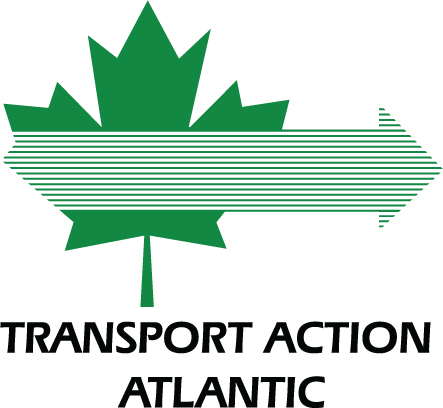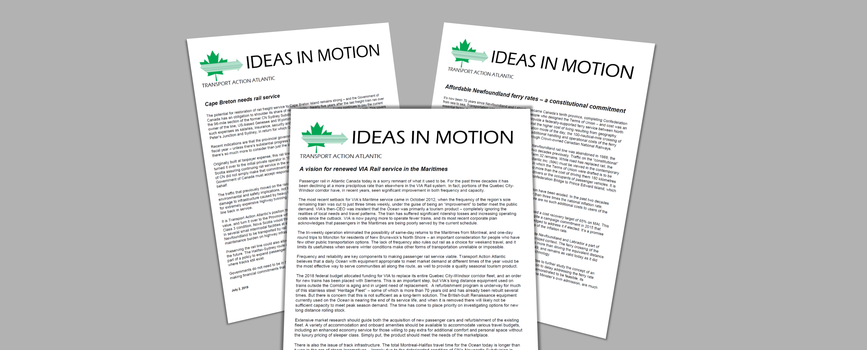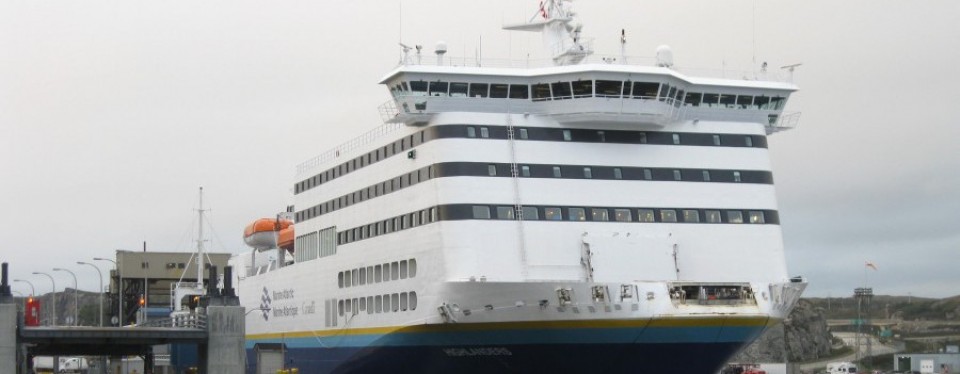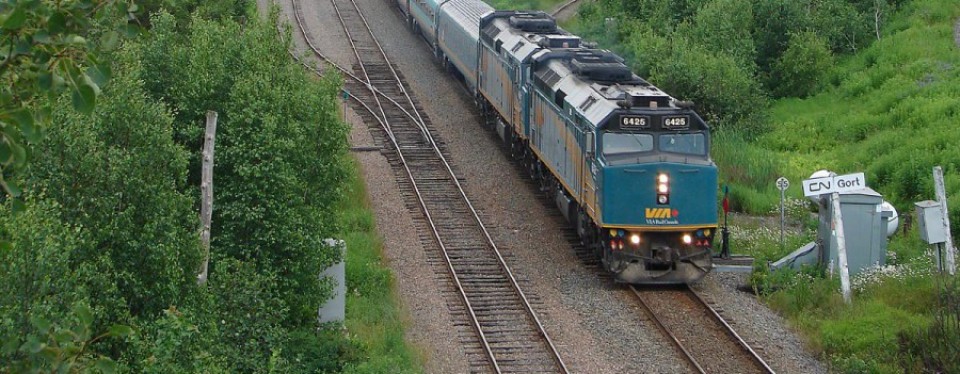Here is the full text of TAA’s opening statement, as presented at the UARB hearing in Sydney on December 8, 2014, by Ashley Morton.
Transport Action Atlantic is a non-profit, charitable organization that works to promote and support all forms of public transport and sustainable transportation throughout Atlantic Canada. We are particularly partial to the rail mode as environmentally responsible, socially beneficial, safe, and efficient. And our membership believes that there must be rail to Sydney.
We understand that the only topic formally before the Board today is simply the question of notice period. However, it is the position of Transport Action Atlantic that it is precisely because this service is so important that the notice period must be as long as possible. A longer notice period allows greater opportunity for another solution to be found, and offers a greater likelihood that that solution, when implemented, will be fully-thought-out and ready to be successful, rather than something “patched together” under the urgency of an impending deadline. Therefore, we must discuss why this rail line must be maintained and enhanced – not discontinued and then abandoned.
First, we point to the letter the Cape Breton Regional Municipality has raised, regarding the commitment made by CN in 1993 to ensure continuing service on this railway, in the event that Cape Breton & Central Nova Scotia ever commenced abandonment proceedings. This commitment was referenced by the National Rail Transportation Board in their ruling allowing the transfer.
CN, as a Crown corporation at the time, clearly spoke with the weight of the federal government behind them. Of course CN is no longer a Crown corporation. But if the privatized CN has not inherited the requirements of that commitment, it clearly must be the federal government that now bears that obligation. However, it is illogical and silly to think that the commitment simply vanished into thin air when the Government of Canada chose to privatize CN. Someone is obliged to fulfill it.
Second, there are currently users of the highway network serving Cape Breton, particularly residents of the island, who find the major highways undersized, under-maintained, and unsafe. Taking heavy cargo traffic from the roads to move it by rail helps address these problems. Simply removing traffic, particularly vehicles that often move slower than normal flow, speeds up everyone’s journey. Heavy cargo is also the cause of some of the greatest maintenance needs, increasing wear on highways very quickly. However, most importantly, the more heavy trucks there are on a highway, the higher that road’s rate of accident deaths.
This is not to fault trucks or their drivers. In fact, in many of these cases, it is the other drivers who are at fault. However, stopping distance, lack of manoeuvrability, and blind spots make accidents unavoidable, and the weight of trucks make them far deadlier. We will be directly saving lives by maintaining and increasing cargo traffic on rails, not to mention increasing road capacity and decreasing maintenance budgets.
Finally, we wish to call the Board’s attention to the fact that Genesee & Wyoming appear to have subverted the authority of the Board by, in fact, discontinuing the service already. Of course, they have not formally stopped offering the service, but they have increased prices so much that there is now an artificial lack of demand. They have done this by declining a provincial subsidy. We would ask the Board to consider a means of dealing with this, so that the artificially disappearing demand does not become a justification for further lack of service.
This requires that, first, the Board disregard all traffic statistics since the dramatic increase in pricing. Carload traffic will obviously be in rapid decline, but this has nothing to do with the suitability of the service for its customers, and rather originates in the service provider’s desire to generate artificially-low numbers to justify a discontinuation. Secondly, we request that the Board consider strategies that may be within their jurisdiction for lowering the prices for shippers back to previous rates, so as not to render the Board’s decision moot.
One strategy that Transport Action Atlantic would support is that the subsidy be remitted directly to shippers, rendering their effective cost of transport equivalent to its previous price.
Thank you again, and we look forward to hearing the contributions of others present today.




